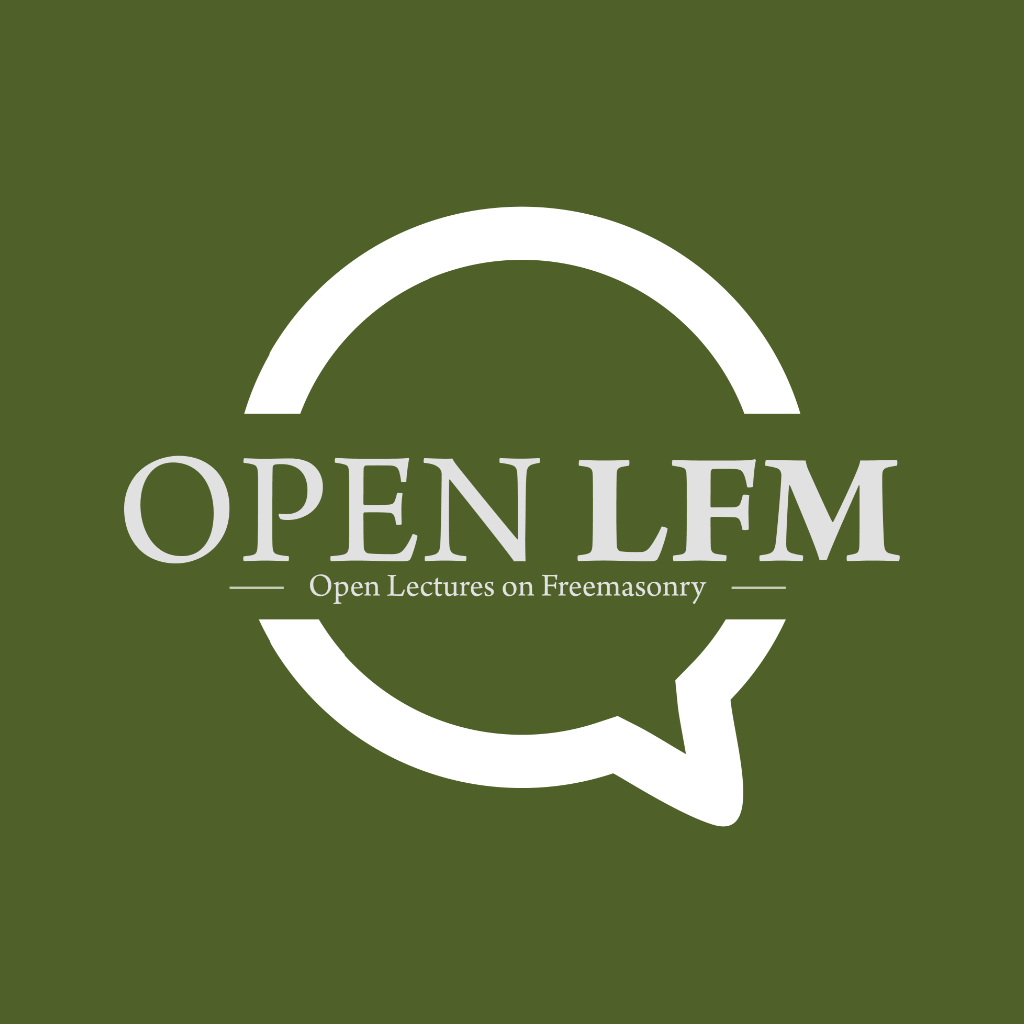Introducing Open Lectures on Freemasonry
In this era where knowledge becomes more reachable through digital technologies, Open Lectures on Freemasonry (OpenLFM) aims to increase the visibility and accessibility of research into Freemasonry through online lectures.
Lectures are audible, within technical limits, to those who are interested in the topic to be presented.
OpenLFM is an independent, informal and benevolent initiative unrelated to any masonic body or scientific institution.
It is a collaboration of a researchers’ group with different formations and coming from various parts of the world.
Lectures
Lectures are in English. Each lecture lasts for 25 minutes followed by a 15 minutes Q&A session moderated by the session chair. The lectures will be held live on Zoom and past lectures will be available on Soundcloud and YouTube.
Participation requires prior registration. Registration is free of charge. Registered users will be informed about forthcoming activities. OpenLFM beholds the right to reject any registration with no further explanation.
Register: Here
Research in a Time of Coronavirus
by: Dr.Andrew Prescott
26 April 2020
Research in a Time of Coronavirus: Resources and Opportunities The most pressing need in research into the history of Freemasonry is to escape from the distortions caused by over-reliance on secondary literature. We need to seek out and engage more strongly with primary source material. The global lockdowns offer unexpected opportunities for us to pursue this research as some archives and libraries are opening up their digital resources for free access and lists of free online materials are being developed. This talk will illustrate how you can pursue research into primary documents relating to the history of freemasonry while in lockdown.
Speaker: Andrew Prescott in a session chaired by Susan Sommers. The event was a great success with an audience from America, Europe, Africa and the Middle-East.
Changing the Paradigm in Freemasonry
by: John L. Cooper
23 May 2020 19:00 BST
Freemasonry is an initiatic institution. Individuals are brought into it through a process which we call initiation. When properly understood, this process makes a deep and lasting impression on the initiate.
However, this great strength has become a barrier when applied to the degrees beyond the three basic ones of Ancient Craft Masonry, and to the wider study of symbol and allegory itself.
Moreover, the division of Freemasonry into differing jurisdictions with the concomitant problem of recognition, deprives Masons of the opportunity to study Freemasonry, and share the results of that study, across jurisdictional boundaries.
Eliminating the initiatic paradigm for anything beyond the first three degrees of Freemasonry should be explored.

Speaker: John Cooper pursued a career in public education as a high school teacher and administrator. He is a past grand master of the Grand Lodge of California and an internationally recognized researcher into Freemasonry.

Session Chair: Allan Casalou is the grand secretary of the Grand Lodge of California. He’s been the editor of the California Freemason magazine since 2002.
Article Source: OpenLFM
Forthcoming Lectures: – https://sites.google.com/view/openlfm/lectures
OpenLFM welcomes selected works relevant to Freemasonry. You may submit your paper at OpenLFM@gmail.com
Recent Articles: of current interest
 Keeping Passions and Prejudices within Due Bounds Master your emotions and find balance in a chaotic world with Darren Allatt's "Keeping Passions and Prejudices within Due Bounds." Discover practical strategies for self-awareness, emotional intelligence, and building meaningful relationships. Transform your life with calmness, clarity, and purpose. Start your journey towards emotional mastery today. |
 Masonry in the Age of Leisure - P2 Explore the optimistic future of Masonry in "Masonry in the Age of Leisure" by VVenBro Scott Wisdahl. Delve into the possibilities of a leisure-driven society where technology enhances social bonds, decentralizes the Craft, and reshapes Masonic traditions. Discover how Masonry can thrive in an interconnected, tech-savvy world. |
 Masonry in the Age of Leisure - P1 Embrace the future of Masonry in the Age of Leisure! Imagine an era where technology empowers deeper connections, offering a tapestry of diverse groups united by Freemasonry’s timeless values. Envision hybrid meetings transcending borders, fostering brotherhood across continents. This optimistic future cultivates intellectual growth and social interaction, heralding a Masonic renaissance for all. |
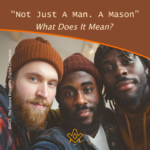 “Not Just A Man. A Mason”: What Does It Mean? Embrace the profound essence of Freemasonry, not merely a group but a journey of integrity, shaping men of dignity. By adopting virtues such as honesty, justice, and brotherly love, Freemasonry transcends time, urging us towards a dignified life. It’s more than being a man; it’s about living with unyielding dignity. |
 Multiculturism and the Culture of Freemasonry Freemasonry, with its deep roots in universal principles such as individual freedoms, education, and the pursuit of science, stands as a beacon of unity in a world divided by conflicting ideologies. By embracing the tenets of Freemasonry, including respect, peace, and mutual understanding, we can navigate societal challenges and foster a more harmonious world. |
 Embrace the new paradigm of eco-conscious living in the 21st century. Freemasonry, a cornerstone of society, must evolve, placing Nature at its heart. Reject anthropocentrism, embrace deep ecology, and champion sustainable living and global cooperation. Let Freemasonry lead by example, advocating for a world where humans and nature coexist harmoniously. |
 How Freemasonry Has Woven Itself into the Fabric of Society Like the weathered stones of an ancient temple, Freemasonry's origins are shrouded in mystery. This fraternal order has woven invisible threads throughout society's fabric since emerging in the 1600s. Despite declining membership, Freemasonry's influential legacy endures, seen in philanthropy, architecture, and the ideals of legendary members. Though facing challenges, revival remains possible if it adapts traditions to the modern era. |
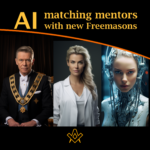 AI help in matching mentors with new Freemasons Harnessing AI for Freemasonry Mentorship: A Comparative Analysis. Freemasonry, an age-old fraternity, seeks to enhance its mentorship program by leveraging AI. While the Grand Master suggests detailed member profiles for matching, a Professional Coach emphasizes personality compatibility. Meanwhile, an AI Bot proposes machine learning for pattern recognition. Dive in to explore the potential and pitfalls of each approach. |
 Masonic Charities P.2 – The Shriners Discover the Shriners' legacy within Freemasonry; delve into their profound commitment to philanthropy and see how Masonic Charities demonstrate brotherly love, relief, and truth. Become inspired by the bonds that unite Shriners around the globe and their impactful work in local communities. |
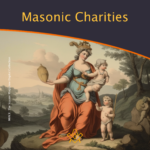 Freemasonry's commitment to charity has always been a priority and remains a core principle, reflecting its mission to promote brotherly love, relief, and truth in the world. Part 1 of the series gives an introduction to the establishment of the main Masonic Charitable endeavours in the 18th and 19th centuries and several key influencers. |
 Solomon Learning and Development Platform The Intersection of Freemasonry and Technology: Embracing the Digital Age with the New |
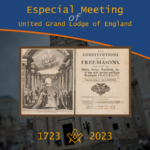 Especial Meeting of United Grand Lodge of England The year 2023 marks the tercentenary of the publication in London of the Constitutions of the Freemasons, based on Enlightenment principles that provide the philosophical foundations of modern Freemasonry. Why are the 1723 Constitutions important? Many Masonic histories have been concerned with ‘when’ and ‘what’. We also explore ‘why?’ |
 Like every other incident of initiation it is in the light of the larger meanings of Freemasonry that we must interpret the Rite of Destitution. But what does it mean? |
 Society of Grand Lodges in Alliance (SOGLIA) is a confederation of Grand Freemason Obediences in which all members obey the principles of Regularity. Assembled annually, in different places of the world, in order to share fellowship and to promote Masonic tradition, SOGLIA members are respecting the autonomy of each Grand Lodge. |
 Confederation of the Grand Lodges of Europe and the Mediterranean - Universal Freemasonry and its intellectual property are less and less taken into account in the current times of constant movement and unclear future prospects. |
 The Book of Law in Brazilian Freemasonry We are informed that, Freemasonry it is not a religion, but the candidate has a belief in a creative principle, which later, we call the Great Architect of the Universe. - by Fernando Rodrigues de Souza |
 Mike's Masonic Walks And Talks WBro. Mike Neville is a Masonic author and lecturer. He offers walks and talks primarily around London, based on his vast knowledge of the area and his specialist subjects, which cover all aspects of Masonic history. |
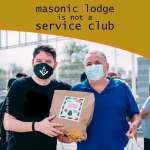 A Masonic lodge is not a service club An address delivered to the 10th Annual Conference of Western Canadian Grand Lodges (1950) in response to the question, "Should Our Western Grand Lodges Sponsor a Specific Program?" By |
 The Order of Bees was established as a youth initiative for the boys and girls of Prince Hall Freemasons, and symbolises the relationship existing between the activities of the youth and the family of bees. |
 The Confederación Masónica Interamericana (CMI) was founded in 1947, is a non-profit organization that groups together 92 Great Masonic Powers, admitted as members and distributed in 26 countries in South, Central, North, Caribbean and Europe. |
 This smartphone app is designed to work with all Freemasons from both Regular and Independent Grand Lodges around the world. |
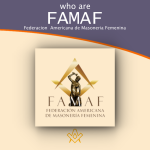 The American Federation of Feminine Freemasonry (FAMAF) is an organization that brings together Grand Lodges, Grand Orients and Confederations of Feminine Masonic Grand Lodges from the American continent. |
 The third largest Masonic Alliance of independent grand lodges, which currently has over 500,000 members in the world and an incredible resource of "good people with a good reputation" from around the world. |
 A Guiding Paw - my faithful 'brethren' A heart-warming story of one Mason's best friends – and how Gary's faithful guide dogs have helped fulfil both his Masonic life but also his valuable work in public service. |
 A visit to the Mother Lodge of Scotland Let me take you to the heart of Scotland to meet our Brethren of the Mother Lodge of Scotland, a journey into one of Freemasonry's deepest roots. Our guide Carlos Oliveira Santos who is from |
 An introduction to VEREINIGTE GROSSLOGEN von Deutschland / UNITED GRAND LODGES of Germany |
 International Masonic Union CATENA An international association of Grand Lodges and independent Lodges, with all true Masonic traditions, which adhere to the basic principles of the equal standing of men and women in Freemasonry |
 Social Impact of Prince Hall Freemasonry in D.C., 1825-1900. Alonza Tehuti Evans discusses Prince Hall Freemasonry, founded by African Americans. |
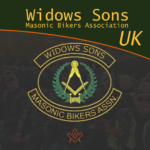 Who are the Widows Sons, and what do they do, and how can you join ? |
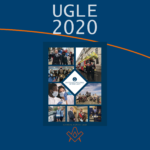 For the first time in its 300 year history UGLE has published an Annual Review |
 Founded in 1919 and named after the Grand Master of the Knights Templar, this International Order has helped young boys become great men. |
 9th International Conference of Freemasonry Hidden Meanings: Esotericism and Masonic Connections |
 An introduction to CLIPSAS and we look at who are they and what do they do |
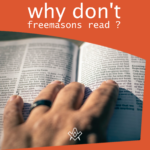 The title of this article will seem somewhat of an oxymoron, because at this precise moment you, most likely a Freemason, is reading this |
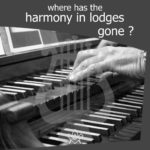 Music can make you either remember everything or forget everything! They even call it the 'rhythm' of life because life does have a beat, a rhythm, a song! Music is equally important for Freemasons. |
 Young Masons' Inter-Club Virtual Social An initiative was created to initially keep Brethren engaged in their Masonry whilst the restrictions of the COVID-19 pandemic are in place. |
 I've heard people say that we don't have heroes |
 What can we learn from Steve Jobs' address given at Stanford in 2005 |
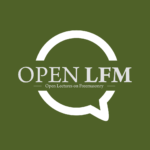 Open Lectures on Freemasonry as a series of monthly online lectures that aims to increase the visibility and accessibility of research into Freemasonry. The lectures are open to anyone who is interested. |
 What Kind of Library Do You Have? Many Brothers have no clue as to what kind of "Craft" library they actually have in their home or office. Most of these Brothers don’t care that they don't know – so, what kind of library do you have? |
 Russian Freemasonry a combination of a short sketch of its history and a review of the present-day Masonic landscape in this country |
 A brief outline showing the differences and similarities within Freemasonry |
masonic knowledge
to be a better citizen of the world
share the square with two brothers

click image to open email app on mobile device
